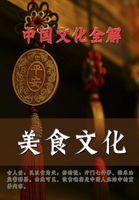Thus judgement, also, is equipped with an a priori principle for the possibility of nature, but only in a subjective respect.By means of this it prescribes a law, not to nature (as autonomy), but to itself (as heautonomy), to guide its reflection upon nature.This law may be called the law of the specification of nature in respect of its empirical laws.It is not one cognized a priori in nature, but judgement adopts it in the interests of a natural order, cognizable by our understanding, in the division which it makes of nature's universal laws when it seeks to subordinate to them a variety of particular laws.So when it is said that nature specifies its universal laws on a principle of finality for our cognitive faculties, i.e., of suitability for the human understanding and its necessary function of finding the universal for the particular presented to it by perception, and again for varieties (which are, of course, common for each species) connection in the unity of principle, we do not thereby either prescribe a law to nature, or learn one from it by observation-although the principle in question may be confirmed by this means.For it is not a principle of the determinant but merely of the reflective judgement.All that is intended is that, no matter what is the order and disposition of nature in respect of its universal laws, we must investigate its empirical laws throughout on that principle and the maxims founded thereon, because only so far as that principle applies can we make any headway in the employment of our understanding in experience, or gain knowledge.
VI.The Association of the Feeling of Pleasure with the Concept of the Finality of Nature.
The conceived harmony of nature in the manifold of its particular laws with our need of finding universality of principles for it must, so far as our insight goes, be deemed contingent, but withal indispensable for the requirements of our understanding, and, consequently, a finality by which nature is in accord with our aim, but only so far as this is directed to knowledge.The universal laws of understanding, which are equally laws of nature, are, although arising from spontaneity, just as necessary for nature as the laws of motion applicable to matter.Their origin does not presuppose any regard to our cognitive faculties, seeing that it is only by their means that we first come by any conception of the meaning of a knowledge of things (of nature), and they of necessity apply to nature as object of our cognition in general.But it is contingent, so far as we can see, that the order of nature in its particular laws, with their wealth of at least possible variety and heterogeneity transcending all our powers of comprehension, should still in actual fact be commensurate with these powers.To find out this order is an undertaking on the part of our understanding, which pursues it with a regard to a necessary end of its own, that, namely, of introducing into nature unity of principle.This end must, then, be attributed to nature by judgement, since no law can be here prescribed to it by understanding.
The attainment of every aim is coupled with a feeling of pleasure.
Now where such attainment has for its condition a representation a priori-as here a principle for the reflective judgement in general-the feeling of pleasure also is determined by a ground which is a priori and valid for all men: and that, too, merely by virtue of the reference of the object to our faculty of cognition.As the concept of finality here takes no cognizance whatever of the faculty of desire, it differs entirely from all practical finality of nature.
As a matter of fact, we do not, and cannot, find in ourselves the slightest effect on the feeling of pleasure from the coincidence of perceptions with the laws in accordance with the universal concepts of nature (the categories), since in their case understanding necessarily follows the bent of its own nature without ulterior aim.But, while this is so, the discovery, on the other hand, that two or more empirical heterogeneous laws of nature are allied under one principle that embraces them both, is the ground of a very appreciable pleasure, often even of admiration, and such, too, as does not wear off even though we are already familiar enough with its object.It is true that we no longer notice any decided pleasure in the comprehensibility of nature, or in the unity of its divisions into genera and species, without which the empirical concepts, that afford us our knowledge of nature in its particular laws, would not be possible.Still it is certain that the pleasure appeared in due course, and only by reason of the most ordinary experience being impossible without it, bas it become gradually fused with simple cognition, and no longer arrests particular attention.Something, then, that makes us attentive in our estimate of nature to its finality for our understanding-an endeavour to bring, where possible, its heterogeneous laws under higher, though still always empirical, laws-is required, in order that, on meeting with success, pleasure may be felt in this their accord with our cognitive faculty, which accord is regarded by us as purely contingent.As against this, a representation of nature would be altogether displeasing to us, were we to be forewarned by it that, on the least investigation carried beyond the commonest experience, we should come in contact with such a heterogeneity of its laws as would make the union of its particular laws under universal empirical laws impossible for our understanding.For this would conflict with the principle of the subjectively final specification of nature in its genera, and with our own reflective judgement in respect thereof.















